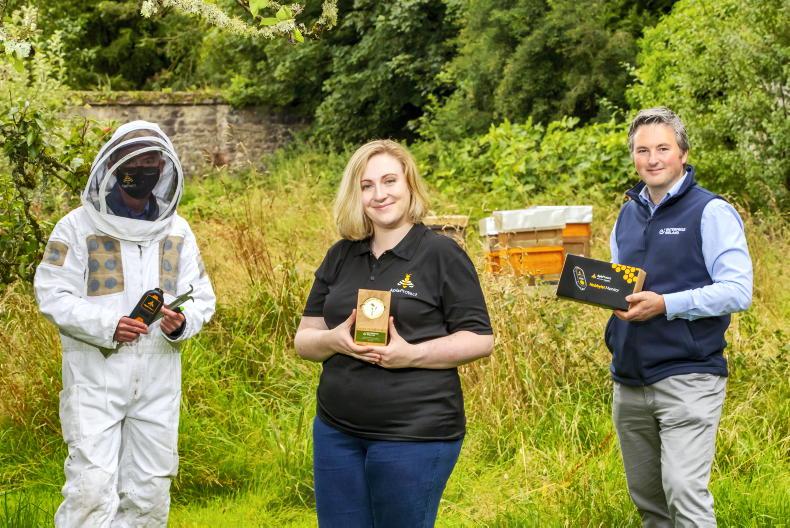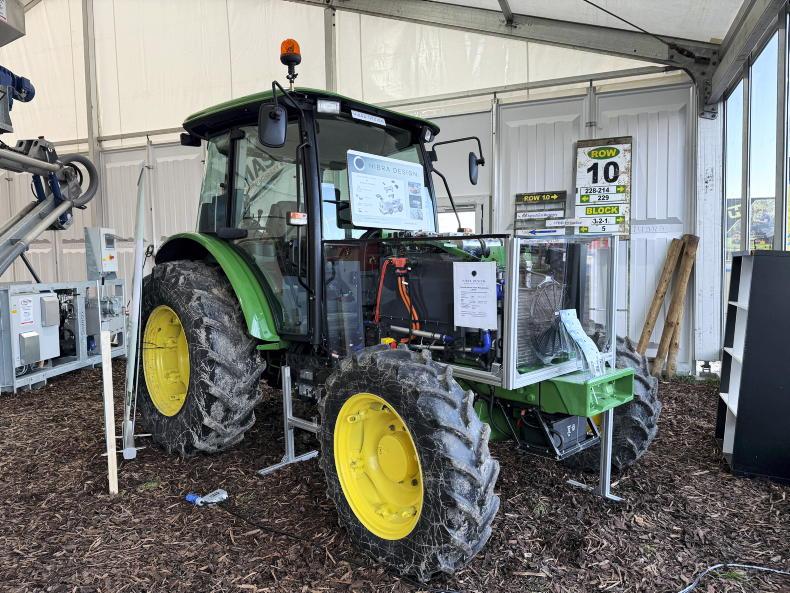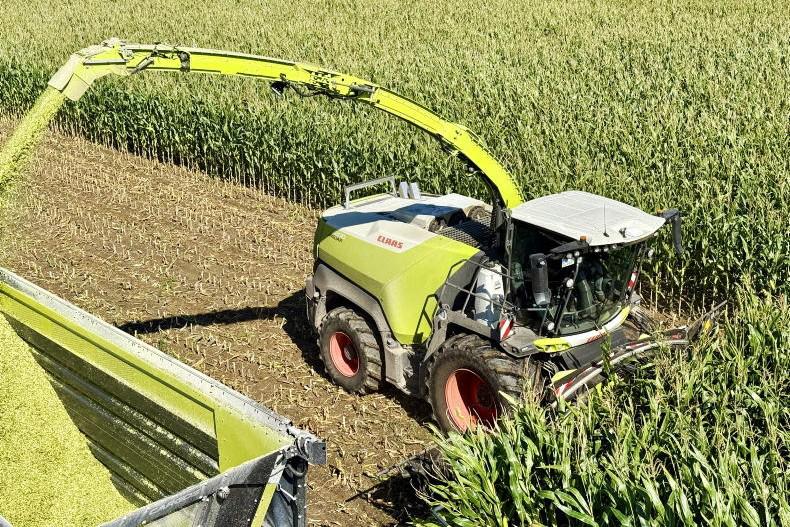When Dr Fiona Edwards Murphy began her PhD, examining the use of sensor technology in beehives, she quickly spotted the potential for tech solutions in this space.
Within a few short years she became the most widely published author on the Internet of Things and honey bees. She then co-founded ApisProtect which developed a world-first wireless hive sensor with global export potential.
Around one-third of all food that we eat depends on pollinators, and there are 191m managed beehives worldwide to help achieve this. However, in many countries, up to 41% of hives (UN FAO) are dying annually.

The sensor is fitted to the roof of the hive.
Most hive monitoring takes place as periodic, manual hive checks. This form of management can allow disease, pests and other issues to deteriorate colony condition beyond rescue, before the problem is detected.
After spotting the need for new sensor solutions for hive management, Dr Edwards – along with co-founder Dr Pádraig Whelan – set about developing a sensor which can be placed in the hive.
The sensors were designed to monitor multiple parameters of the hive and alert beekeepers to the hives that need their attention before it is too late.
The sensors essentially act as an early warning system. This innovation picked up the Agritech Startup Award in this year’s Innovation Arena.
Sensors
The wireless sensors are fixed to the underside of the roof of the hives. Installation takes around one minute.
Bees are meticulous about what they let into their hives, so careful consideration had to be given to the material used to build the sensors.
The material also had to be durable enough to withstand the extreme environment within the hive.
The sensors gather data on temperature, movement, humidity and sound from within the hive.
The data is sent to the ApisProtect’s platform where it is analysed. As conditions in the hive are dependent on the location, hive data is compared to baseline data collected from other hives in that region. To date, over 100m honey bees have been monitored using their sensors.
Beekeepers then receive smart alerts and insights on a custom dashboard which briefs them on the condition of their hives and identifies problem colonies, as well as suggesting a variety of actions to keep the colonies healthy and prevent loss.
This system does not require beekeepers to learn new technology or take on additional tasks.
Instead, beekeepers save time and decisions which will have a greater impact on colony performance. Beekeepers can monitor the conditions in their hives remotely and observe and changes over time.
Markets
ApisProtect initially launched its product in the US to commercial beekeepers who are generally large in scale and use their bees for pollination purposes.
Using their system, ApisProtect claims that beekeepers can generate an average of an additional €85 of value from each hive per year.
Earlier this year, it launched hobbyist beekeeping monitors in Ireland and the UK.

The sensor was recently launched on the hobbyist Irish and UK market.
With over 274,000 beehives in the UK and 44,000 hobbyist beekeepers, they were keen to expand into that market. Their price point in the hobbyist market is around €205/monitor with a monthly subscription thereafter.
1.4bn farming jobs and three-quarters of the world’s food supply (about €470bn a year) depend on the pollination of crops.Of the 100 crop species that feed 90% of the world’s population, 70 are pollinated by domesticated and wild bees.The global honey industry is worth an estimated €7.76bn in 2020.Ireland has 98 different species of bees including honey bees, bumblebees and solitary bees.
Name: ApisProtect.Location: Cork.Founded: 2017. Employees: 10.2021 innovation award: winner
of Agritech Startup Award.
When Dr Fiona Edwards Murphy began her PhD, examining the use of sensor technology in beehives, she quickly spotted the potential for tech solutions in this space.
Within a few short years she became the most widely published author on the Internet of Things and honey bees. She then co-founded ApisProtect which developed a world-first wireless hive sensor with global export potential.
Around one-third of all food that we eat depends on pollinators, and there are 191m managed beehives worldwide to help achieve this. However, in many countries, up to 41% of hives (UN FAO) are dying annually.

The sensor is fitted to the roof of the hive.
Most hive monitoring takes place as periodic, manual hive checks. This form of management can allow disease, pests and other issues to deteriorate colony condition beyond rescue, before the problem is detected.
After spotting the need for new sensor solutions for hive management, Dr Edwards – along with co-founder Dr Pádraig Whelan – set about developing a sensor which can be placed in the hive.
The sensors were designed to monitor multiple parameters of the hive and alert beekeepers to the hives that need their attention before it is too late.
The sensors essentially act as an early warning system. This innovation picked up the Agritech Startup Award in this year’s Innovation Arena.
Sensors
The wireless sensors are fixed to the underside of the roof of the hives. Installation takes around one minute.
Bees are meticulous about what they let into their hives, so careful consideration had to be given to the material used to build the sensors.
The material also had to be durable enough to withstand the extreme environment within the hive.
The sensors gather data on temperature, movement, humidity and sound from within the hive.
The data is sent to the ApisProtect’s platform where it is analysed. As conditions in the hive are dependent on the location, hive data is compared to baseline data collected from other hives in that region. To date, over 100m honey bees have been monitored using their sensors.
Beekeepers then receive smart alerts and insights on a custom dashboard which briefs them on the condition of their hives and identifies problem colonies, as well as suggesting a variety of actions to keep the colonies healthy and prevent loss.
This system does not require beekeepers to learn new technology or take on additional tasks.
Instead, beekeepers save time and decisions which will have a greater impact on colony performance. Beekeepers can monitor the conditions in their hives remotely and observe and changes over time.
Markets
ApisProtect initially launched its product in the US to commercial beekeepers who are generally large in scale and use their bees for pollination purposes.
Using their system, ApisProtect claims that beekeepers can generate an average of an additional €85 of value from each hive per year.
Earlier this year, it launched hobbyist beekeeping monitors in Ireland and the UK.

The sensor was recently launched on the hobbyist Irish and UK market.
With over 274,000 beehives in the UK and 44,000 hobbyist beekeepers, they were keen to expand into that market. Their price point in the hobbyist market is around €205/monitor with a monthly subscription thereafter.
1.4bn farming jobs and three-quarters of the world’s food supply (about €470bn a year) depend on the pollination of crops.Of the 100 crop species that feed 90% of the world’s population, 70 are pollinated by domesticated and wild bees.The global honey industry is worth an estimated €7.76bn in 2020.Ireland has 98 different species of bees including honey bees, bumblebees and solitary bees.
Name: ApisProtect.Location: Cork.Founded: 2017. Employees: 10.2021 innovation award: winner
of Agritech Startup Award. 












SHARING OPTIONS